Check out some books by your tutor Fiona Veitch Smith … (click on the book covers to find out more)
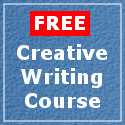 Hello everyone, welcome to the first session of our free online creative writing course. Over the next eight sessions we will be looking at different aspects of creative writing and trying our hand at various forms. I’d strongly encourage you to have a go at the exercises along the way, and please feel free to leave comments or ask questions at the end. If you have arrived on this page without first reading the home page and frequently asked questions page (on tab above) please go back and do so now. If you have read them, enjoy the course!
Hello everyone, welcome to the first session of our free online creative writing course. Over the next eight sessions we will be looking at different aspects of creative writing and trying our hand at various forms. I’d strongly encourage you to have a go at the exercises along the way, and please feel free to leave comments or ask questions at the end. If you have arrived on this page without first reading the home page and frequently asked questions page (on tab above) please go back and do so now. If you have read them, enjoy the course!
Creativity and Art
What is creativity? The Collins dictionary defines it as ‘the ability to cause something to exist’. Without getting into too much of an existential discussion, I would say that with every thought that is expressed, something has been created. It was Descartes who said: ‘I think, therefore I am’; well I would add, ‘I think, therefore I create’ (do you feel a God complex coming on?). But how do we express our thoughts? Sometimes we do it verbally, other times by body language and still again through what is loosely termed ‘art’.
Art takes place when a thought is expressed and fixed in a way that other people may experience it on an aesthetic level – through music, writing, painting, sculpture, choreography and so on. Many artists say that their best work takes place when they ‘by-pass’ the thought and simply express the feeling. This may be true, but for writers, who use a verbal medium, a feeling must first be converted into a thought before it can be put into words. Don’t over analyse the thought before you express it, as this way you can ‘channel’ the purest interpretation of the feeling, but some cognitive process needs to take place. Some writers prefer to mull over a thought and give it form before they put pen to paper – I’m one of them – but it’s good practice to try and switch off the ‘editor’ at least for the first draft. First response trigger exercises are useful in this regard and can release some unexpected words and images.
Exercise 1:
Write down your first response to these words or phrases:
- Blue ball
- And that’s when the sadness came
- Coffee
The first task of a good writer is to convert feelings into thoughts and then into words. This is the raw material that can then be converted into something more permanent. Some writers refuse to toy with their first drafts, believing their creativity will be diluted; I disagree. Allowing your critical mind to improve a piece of writing is where the craftsman meets the artist. Something produced only by the former will lack soul and something by the latter will lack form. Good writing is a combination of art and craft.
For public consumption
Art, of course, is highly subjective and one woman’s masterpiece is another woman’s unmade bed. We all have the ability to create, but whether or not our creation is ‘art’ must be left to the eye or ear of the beholder.
In this session we will look at how you can craft those creative thoughts into creative writing to share with other people. And that’s what sets ‘public’ writing apart from ‘private’ scribblings – there’s a perceived readership in mind. When I ramble on in my journal, I am the only one who will read it (hopefully!) so my only concern is getting my thoughts down on paper. The moment I want someone else to read it I begin to consider ways to improve the presentation and craft it into something more aesthetically pleasing. I consider which words may sound more colourful, whether or not my sentence structure is grammatically correct, whether I’m using evocative imagery, and so on.
Story, feeling or image?
What is it about those creative thoughts that you think might be of interest to other people? Do they speak of an eternal truth or a common experience? Do they make you laugh or cry? Do they suggest a story that will entertain or a poem that captures a moment that must be shared?
Exercise 2: In 50 words or less write down why you want to write then list three creative thoughts that you’ve had lately (each 10 words or less). These may be an image, a musing, a ‘truth’, a story, or so on. If you haven’t had any, take yourself for a walk and look around; what grabs your imagination? Browse through a newspaper or a magazine; do any stories or pictures catch your attention? Think back over your day; did anything funny, charming, shocking or unusual happen to you or someone you know?
Poetry or prose?
Some people are more suited to writing poetry than prose and some people do well at both. Although we won’t be discussing it in this course, other people are more suited to script. I’m one of them. I’ve had relative success as a prose writer and in fact have managed to earn a living from it, but it’s taken years of hard work to get to this point. I recently branched out into scriptwriting and found that I had much more of a natural ability. (If you’re interested in finding out more about scriptwriting, check out getting started in playwrighting). You may find that you’ve been trying to make it as a poet when actually you’re more suited to prose. Now I don’t want to pigeonhole anyone, but ask yourself the following questions:
- Are you more attracted to films than stills?
- Do you enjoy telling people ‘stories’ from your life?
- Do you prefer to read stories or poems?
If yes, to these, then you may be more suited to prose than poetry. If no, then the opposite may be true. If it’s ‘sometimes yes, sometimes no’ then perhaps you are suited to both. We shall be looking at how to write poems in more detail in session 7, but suffice to say, a poem is like a snapshot of a moment. If you can’t rest until you know what happened before and after, then prose may be your genre.
Exercise 3: Take one of the three creative thoughts you wrote down in Exercise 2, then list 20 separate words that communicate or describe that thought. Do not, at this stage, link the words into sentences. Once you have your 20 words use them in a poem of 16 lines or less. Then, take the same 20 words and work them into a short story of under 300 words. Which exercise came more easily? Which form has best communicated your creative thought?
Further Resources:
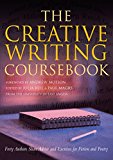
There are some excellent resources out there for creative writers. To get quick ‘starter’ images when your own well is dry I recommend The Writer’s Block by Jason Rekulak. I’m currently working through The Creative Writing Coursebook by Julia Bell and Paul Magrs and finding it very useful.
The next creative writing course session is how to write a short story. But before you move on to that, please feel free to leave a comment or ask a question in the box below.
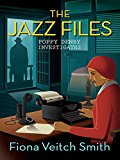
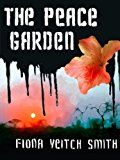
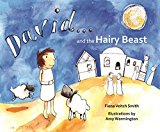
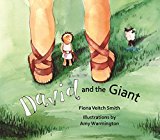
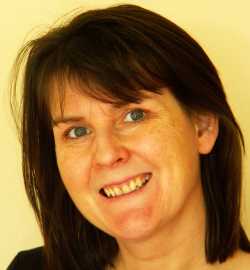 Welcome to The Crafty Writer's free online creative writing course, presented by Fiona Veitch Smith, a freelance journalist, editor, author, playwright, screenwriter and writing teacher. I hope that you'll see a dramatic improvement in the quality of your writing as you work through this course.
Welcome to The Crafty Writer's free online creative writing course, presented by Fiona Veitch Smith, a freelance journalist, editor, author, playwright, screenwriter and writing teacher. I hope that you'll see a dramatic improvement in the quality of your writing as you work through this course.
I found this piece very enlightening. I am very interested and eager to continue the course. It’s also very easy to understand. Congrats.
On exercise 3 i found my short story easier to write but in my head it seemed as if it was rhyming is this normal or is it just because i did the spoem moments before?
It’s probably because you did the poem and your brain was in a rhyming mood.
I realize this is the first page of the course, but you have just created a sense of clarity for me. Instantly, I am on course for home. Wow. Thank you..
Okay I took the plunge and started your free course. The first exercise was difficult but by the time I had reached the second and third objects I was warming up. The poetry surprised me, didn’t think I had that in me. I’m leaning towards the story side. Thanks I will keep up with the remained of the course.
I want to thank you for giving me a jump start on a long journey. I have three strong ideas that I believe in I just do not have the resources to pull it together. Thanks this is a great resource to start my outlining!
Excellent!
I’d love to thank you for such an amazing course. I’ve always assumed I better fit one genre of writing, when I had simply wanted to be better at poetry, then prose, or, in another circumstance, creative writing strictly. Thank you so much for this wonderful course.
You’re most welcome, Adara.
sounds like this may be right up my alley would deffinately like to learn more for i have dreams of publishing my writings someday merry christmas and happy new year peace
helpful
It is nice to be in writing mode again as it has been way too long since I lost myself in my thoughts! The exercises were fun and I was surprised to find in exercise 3, both the poem and short story writing appealed to me! I can’t wait to go to the next course session of short story writing.
Glad I could help you to ‘get lost’. Happy writing!
Happy writing!
several novels started but I get stuck and time flys by.
Exactly, a strugling writer here. Strugling because writer’s block (the scarcity or to be afraid to write) is on to me. I feel like a can of coke that is shaken well but I cannot open my streaming surreal story writing lid myself and no one can help me. Thank you for this wonderful opportunity, I owe you one.
Regards,
Babur from Istanbul, TURKEY
Thank you for this site. I’m a soldier overseas and I write in my spare time to deal with stress and homesickness. I self-published a book (now on Amazon and in print) and two more works are in progress. Thanks to courses like this my next books will be better. What started as a short story hobby for my kids has turned into an obsession.
hi,
i want to write a book, but feeling lost. please can you help me with a few start-up ideas?
No I can’t. Ideas have to come from inside you. This course will help you release them.
I really enjoyed this first session. I was helpful in getting me to understand a little bit more about what and how I want to write. I often times have images, or a scene stuck in my head, and this was a great help in getting the thought/image out and transferred onto paper.
“Turning the editor off” was something I hadn’t even considered, an I don’t know why. Fear that it wouldn’t come out right, I guess. Thank you!
Result!
Thank you, this is helpfull.
This has been a great first session so far.
It has helped me in the discovery of my talents.
And the discovery of my weaknesses.
The discovery of our weaknesses are often the most revealing. But very glad you’ve found some talent too!
What a fun exercise. I am a newbie and looking forward to developing the gifting that has been instilled in me. Thank you so much for your assistance.
Glad to be of service!
That is the first time I have been able to organize my ideas into a something that resembled a story! Thank You!
Glad to hear it. Keep on writing!
I found it very useful especially because I thought I was out of idea but when I had to do the exercise I actually realize I had plenty and I only had to organize my thoughts and stay in the 300 words (which was a nightmare)
In a sentence: It is motivating
Thanks,
I felt that this exercise was quick, fun, and informative. Thank you.